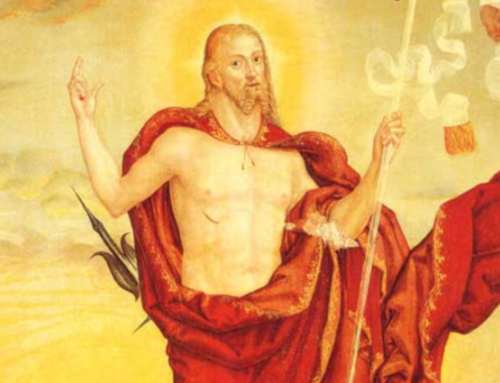One of the things that I have, blessedly, never taken  for granted is how many astounding intellects, diverse personalities, and creative persons I’ve encountered in my life. I don’t know what I did to deserve such interactions, but I’m both humbled and inspired by it all.
for granted is how many astounding intellects, diverse personalities, and creative persons I’ve encountered in my life. I don’t know what I did to deserve such interactions, but I’m both humbled and inspired by it all.
As I’ve had the chance to note several times, here and elsewhere, I first met the Publisher of The Imaginative Conservative, Winston Elliott, back in the summer of 1995. I still remember that meeting rather clearly, even though the Houston humidity should’ve created a haze around the moment. I’ve also noted how Gleaves Whitney’s 1991 Intercollegiate Review piece on decadence introduced me to serious cultural and conservative criticism. I devoured that article on a transatlantic Christmas flight to meet my then girlfriend (now, just friend) in Denmark. I have not, however, had a chance to write about the first time I finally stood in the same room and ate at the same table as Winston and Gleaves. This first meeting of the three of us was in the summer of 1999, once again in Houston.
I have to note one other thing for the background of this story. In the summer of 1998, I not only got married but I also finished my dissertation. My topic followed the interactions of American Indians, Americans, and British from the American Revolution through the War of 1812. As much as I enjoyed researching and writing the dissertation, I was quite sick of it by 1998. From its beginning, it had been a labor of labor, not one of love. Yet, I was more than happy to have earned the PhD, and I still loved researching and writing as much as I always had (an obsession of mine since I was 10 years old). I just needed a break from the topic. And, even more than being a historian, I wanted to be a writer. For me, academia was a path into writing and publishing.
When Winston asked me what my plans were for the dissertation, I explained to him my exhaustion, at least with that specific topic. He challenged me, then, rather kindly, “If you could write on anything in the world, what would it be?” I, unhesitatingly, answered, “A biography of J.R.R. Tolkien.” One of my favorite papers that I had written as an undergraduate was on the Christianity of Tolkien, and I was shocked at how little had been written on this, even though Tolkien was one of the most devout Catholics I had ever encountered in my own readings and research. Moreover, Tolkien was my favorite author, and I had been devouring his works since the fall of 1977. Winston’s wonderful response? “Well, do it, and I’ll do everything I can to help get it published.” From the spring of 1999 through the summer of 2002, in my personal writing, I did very little but research and write that book. These were also my first years teaching, and I found that, much to my surprise, I loved teaching as much as writing. In some mysterious way, they became one and the same.
And, lo and behold, in very large part because of Winston’s help and certainly because of his unrelenting encouragement, ISI Books published my book on Tolkien, and, thank the good Lord, it remains in print to this day. I will certainly never forget the day I opened that first box of copies ISI sent me as author. That unboxing will always be the best unboxing.
You’ve been patient so far in reading this essay, especially given how autobiographical it is. But I still have to get Gleaves into the mix. This takes us back to the same very steamy summer of 1999. In Houston, at a program sponsored by Winston, Gleaves gave a series of talks on Christian Humanism. I had heard of the concept before, to be sure, since I had been taught by Dominican nuns in grade school and Holy Cross priests in college. Yet, as I listened to Gleaves in 1999, I was still rather solidly in the libertarian and conservative way of thinking. That is, I had yet to escape the deadly and inhumane trap of left-right thinking. Quite contrary to liberalism properly understood, I was chained to the confines of this world, unable to escape my moment in time, a Chronological Snob, and arrogant in my certainty that all things resided on a horizontal scale. Though I would not have realized it at the time, I was still a bit gnostic, believing all things ultimately reduced to left and right. Yes, I was Catholic, but, like so many Americans and modern citizens of Western civilization, I kept that Catholic part of my life quiet, segregating it from my public life. I had realized there were folks as well as ideas that could not be easily described by left or right. I even had a good friend, Kevin McCormick, who had been trying to break me out of the left-right absurdity for years, but I still didn’t quite get it.
In his explanation of Christian Humanism in 1999, Gleaves finally made me realize that the real problems of earthly and human existence are not left and right, but man and anti-man, Christ and anti-Christ. That is, the real conflict is transcendent, not horizontal. It was Gleaves’s lectures on Christopher Dawson that really inspired me and fundamentally challenged my old ways of thinking. In particular, I was surprised by how Gleaves’s explanation of Dawson’s ideas answered several questions I had had about Tolkien but was unable to answer. Late into the night, Winston, his wife Barbara Elliott, Gleaves, and I talked and argued about the things that mattered most here and now as well as there and then. Joseph Pearce was often a part of those conversations, as were John Rocha and John Willson. I was still the young one (along with Rocha) back in the 1990s, so I mostly listened, adding a thought here or there. In those conversations, though, I found not only the friendship of a little platoon of dedicated intellectual warriors, but, frankly, I found my real mentors and inspirations. Indeed, it would be not going too far in claiming that those conversations with Winston, Barbara, Gleaves, Joe, and John finally gave my own career in teaching and writing a definition and a purpose. What exactly did I learn? Well, a full explanation will demand another post or two or three or four. Yet, I can state this with certainty: Those conversations taught me humility, not just at a personal level, but at a macro level. In listening to these fine intellects that summer in 1999, the words of my uneducated but immensely wise grandmother became only more real to me: “Bradley, most of life is a mystery. You just have to accept that.” Yes, I learned not just humility, but the joy of mystery at a deeply intellectual level.
Concretely, I also soon found out, rather happily, that the connection between Tolkien and Dawson was not abstract in the least. The two knew each other well and even attended the same parish in Oxford. They shared the same physician, attended many of the same events and lectures, and even published and cited one another. Then, throw in that T.S. Eliot knew Dawson…
But, I digress.
The Imaginative Conservative applies the principle of appreciation to the discussion of culture and politics—we approach dialogue with magnanimity rather than with mere civility. Will you help us remain a refreshing oasis in the increasingly contentious arena of modern discourse? Please consider donating now.
Editor’s note: The featured image is “Le Bon Samaritain” (1096-07), by Maximilien Luce, courtesy of Wikimedia Commons.







Leave A Comment